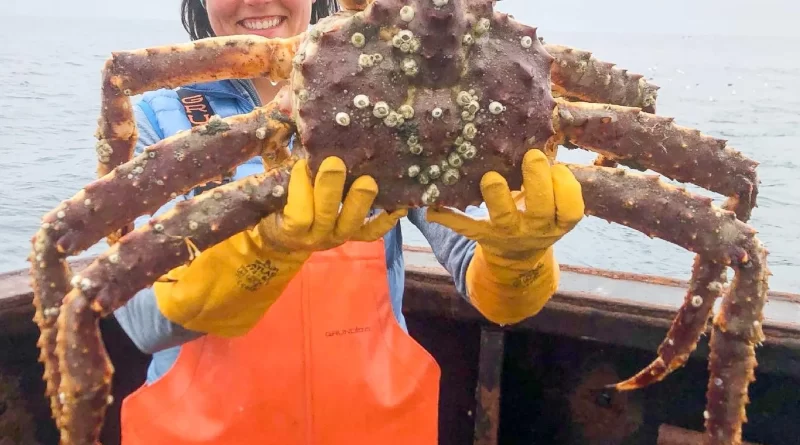Alaska’s declining crab population due to trawlers catches attention of lawmaker
Alaska Representative Mary Peltola is increasingly troubled by the persistent issue of unintended harm to the state’s crab populations and critical habitats caused by the largely Seattle-based pollock industry. This mounting concern may prompt her to take legislative action, a development cheered by scientific and conservation communities.
At present, scientists focused on sustainability and conservation are locked in a standoff with industrial pollock trawler fleets and the North Pacific Fishery Management Council over federal fishery regulations. These regulations encompass pelagic, or “mid-water” trawling, a method employing wide-mouthed nets to target schools of Bering Sea Alaskan pollock.
In February 2023, the Alaska Marine Conservation Council released a damning report assessing the impact of trawlers on red king crab habitats. The report underscored the environmental and financial repercussions following the closure of Alaska snow crab fisheries in 2022 and a two-year shutdown for Bristol Bay king crab that concluded in 2023.
Expressing her exasperation with the North Pacific Fishery Management Council’s inertia, Representative Peltola voiced, “I’ve grown weary of waiting for them [NPFMC] to take decisive action.” Proposals to address the ramifications on king crab populations and trawler fleets, including suggestions to modify king crab savings areas, have been repeatedly rebuffed by the council and the Department of Commerce Secretary.
While bottom trawling, which involves continuous contact with the ocean floor, is subject to stricter regulations and is banned in half of all federal waters due to its substantial habitat damage, mid-water trawling remains a contentious issue.
Peltola has initiated discussions on legislation that would compel the councils to redefine “mid-water” trawling to accurately reflect its impact on the ocean floor.
Several scientists have joined the chorus, urging the NPFMC to revisit the definition and regulation of pollock trawler nets. Peltola’s advocacy for tribal representation on the NPFMC aligns with broader efforts to ensure diverse voices are heard in fishery management decisions.
Criticism has been leveled at the NPFMC’s reluctance to revise industry gear definitions, with Jon Warrenchuk, Oceana Senior Scientist, decrying outdated legal thresholds that contribute to insufficient regulation.
In defense of the industry’s practices, Glenn Merrill, Director of Government Affairs for Glacier Fish, pointed to NOAA’s thorough review process and data collection efforts to assess the impact on essential fish habitats.
However, disagreement persists over NOAA’s methodology, with Warrenchuk highlighting flaws in habitat assessment models and the need for a more nuanced evaluation of habitat recovery post-trawling.
Efforts to address concerns about bycatch, morbidity, and ecological impacts have spurred initiatives such as Coastal Villages’ project to install sensors on trawler nets for precise data collection.
Representative Peltola underscored the imperative of advancing technology to mitigate fishing gear impacts on the ocean floor, emphasizing ongoing endeavors to promote sustainability in fisheries management.




